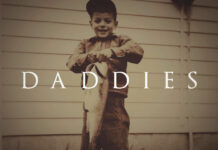My friend Mike confided to me that he and his wife of over 20 years are getting a divorce. Although the split was her idea, he was quick to choose to forgive her and focus on building a stable future for himself, his wife, and their children.
He told me he thought it all through carefully. He said he understood that even though he was content in their marriage, no amount of effort or counseling could put the joy back in their marriage for her. Something was missing for her that he knew he could not provide.
He explained that he simply chooses to forgive her and hopes that she can forgive him. He even quoted Desmond Tutu saying, “Without forgiveness, there is no future.”
This is a very mature, evolved perspective. Mike is right, though. Forgiveness is a choice. A choice not to fight. A choice not to hold a grudge. A choice to surrender your pride and work to obtain peace. In the end, waving the white flag of surrender is a sign of maturity and strength, not submission and weakness.
What makes forgiveness so difficult for some people?
People who generally find it hard to forgive others include (1) people with a low self-esteem who build themselves up by viewing the other’s mistakes as much worse than their own and (2) people who are cognitively immature and have an underdeveloped sense of empathy.
But, even the most empathic and developmentally mature among us must remind ourselves about the importance of forgiveness when the transgression is quite severe, has occurred too often, or is likely on-going – especially when the transgressor has not sincerely apologized.
There also is a common tendency, called the Fundamental Attribution Error, that makes people view other’s mistakes as due to internal causes like their personality or character traits. For example, Mike could say that his wife’s falling out of love with him was caused by “her inability to keep her promises,” “her selfishness,” or “her overly romantic idea of what long-term married life is like.”
These are harsh judgments that would have made it difficult, if not impossible, for Mike to forgive his wife and preserve a friendly relationship with her.
The flip side of the Fundamental Attribution Error makes it even more difficult.
Instead of assuming that their own mistakes are caused by their character or personality traits, people often explain away their mistakes by attributing them to external causes like situational factors or life circumstances. In Mike’s case, he would say “I was only inattentive because I had to work such long hours,” “It’s just the aging process” or “The guys count on me.”
These explanations allow Mike to let himself off the hook, rather than take responsibility for his part in the deterioration of his marriage. Both sides of the Fundamental Attribution Error combine to allow Mike to blame his wife and absolve himself. To judge his wife harshly, rather than view her through empathetic eyes. To self-righteously hold a grudge, rather than forgive.
Fortunately, Mike made another choice. He reframed his attributions and listened carefully to his wife’s needs and concerns. He surrendered his pride and obtained an empathic perspective. As a result, even though they are no longer married, Mike and his wife can maintain a peaceful relationship as they try to reach agreement on important issues and build a stable future for themselves and their children, rather than keep rehashing the past.
Imagine what might have happened if Mike would have learned long ago to reframe his attributions, listen carefully to his wife’s concerns, change his behavior, and sincerely seek her forgiveness. He would most likely still be married… just happily this time.
Please give the Fundamental Attribution Error some thought. Is this common tendency prohibiting you and your partner from forgiving each other, preserving a friendly relationship, and having a happy future?
If so, share this column with your partner (or anyone else you’re struggling with) and suggest that you both give forgiveness a try.
Surrender your pride. You can choose not to fight. Not to hold a grudge.
If you want a future for your relationship, choose forgiveness.
Jamie C. Williamson, PhD is a FL Supreme Court Certified Family Mediator and Gottman Methods Couples Counselor. She is an owner and partner at Amity Mediation Workshop, a mediation practice specializing in “friendly divorce” mediation and marriage revitalization sessions for couples. Dr. Jamie speaks frequently on relationship topics and authors the blog “Work it Out.” You can find her online at amitymediationworkshop.com.


















































